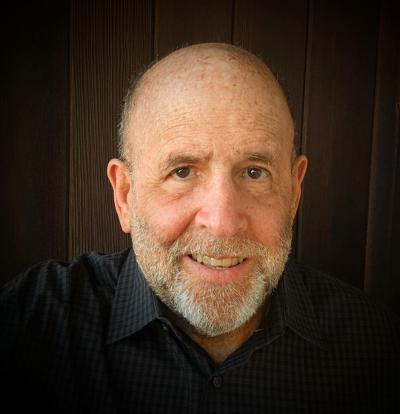By Andrew Malekoff
Years prior to my college graduation in May 1973, I had expected to be drafted into the US Army. My college deferment would be coming to an end. My draft lottery number was 40 out of 366 dates drawn on July 1, 1970.
The authority to induct into military service expired on June 30, 1973. Seven months earlier, on January 27, 1973, President Nixon signed the Paris Peace Accords, which put an end to direct U.S. involvement in the Vietnam War.
Consequently, despite my low lottery number, I was not drafted. After graduation, I needed some time to figure out my next move.
Soon after arriving back in my childhood home, the Watergate hearings had just begun. I was not at all political, but I needed a good distraction.
To review, the Watergate scandal revolved around the Nixon administration’s cover-up following the break-in of the Democratic National Committee headquarters, which was located in the Watergate Office Building. As they say, the coverup is always worse than the crime.
Almost 50 years have passed and, in the interim, nothing has reawakened my memories of the Watergate hearings like the House select committee’s investigation of the Jan. 6, 2021 Capitol insurrection. The J6 hearings started during another major transition in my life – retirement.
I recall that public television aired all 250 hours of the Watergate hearings. If you missed anything during the day, they were repeated in the evening. I was transfixed by the testimony and especially the cast of characters on what was surely must-see reality TV.
I can vividly recall a parade of names, faces and voices like it was yesterday.
Most prominently in my memory are Committee Chairman Sam Ervin, Democrat Senator from North Carolina, and Ranking Member Howard Baker, Republican Senator from Tennessee. They were the spiritual predecessors of J6’s Chair Bennie Thompson, Democratic Congressman from Mississippi, and Vice-Chair Liz Cheney, Republican Congresswoman from Wyoming.
Thompson was 25 during the Watergate hearings. Cheney was just 7-years-old.
If you were too young to be tuned in to the Watergate hearings, not yet born or otherwise occupied, Washington Post reporter Ronald G. Shafer offers an apt snapshot of Chairman Ervin “with his bushy ‘dancing eyebrows,’ an instant TV star…who grilled witnesses in his folksy style, quipping, ‘I am just an old country lawyer, and I don’t know the finer ways to do it.’”
Among the witnesses who never faded from memory are White House counsel and whistleblower John Dean; former NYPD police officer and bagman Anthony Ulasewicz, who delivered “hush money” to Watergate defendants G. Gordon Liddy and E. Howard Hunt; and, President Nixon’s Deputy Assistant Alexander Butterfield, a retired U.S. Air Force officer, who revealed the existence of the White House taping system during the hearings on July 13, 1973.
Unforgettable in the J6 hearings, thus far, has been the compelling testimony of beleaguered Georgia election workers Ruby Freeman and Shaye Moss, a mother and daughter.
As Freeman testified, “There is nowhere I feel safe. Do you know how it feels to have the President of the United States target you? The President of the United States is supposed to represent every American, not target one. But he targeted me – Lady Ruby.”
Also memorable is former acting US Deputy Attorney General Richard Donoghue, who had served in the 82nd Airborne division of the U.S. Army.
Straight-arrow Donoghue questioned Jeffery Clark’s qualifications to serve as attorney general after he lobbied for that position with President Trump. Clark had previously worked exclusively in the area of environmental law, and had no criminal law background whatsoever.
Nevertheless, President Trump tried to install him as attorney general, to do his bidding in overturning the election. Donoghue, Clark’s superior, famously recalled how he directed Clark to go back to his office and “we’ll call you when there is an oil spill.”
And, finally there is Cassidy Hutchinson, former top aide to President Donald Trump’s White House chief of staff Mark Meadows. Hutchinson, 26, provided first-hand testimony from her experience inside the West Wing. She recalled how White House officials warned President Trump about the potential dangers of Jan. 6.
In addition to revealing details about President Trump’s meltdowns, in which he threw plates of food against the wall, she testified that she warned Meadows of the danger of the unfolding Capitol insurgency in real time. “I was really saddened as an American,” Hutchinson said. “I was disgusted. It was unpatriotic. It was un-American. We were watching the Capitol get defaced over a lie.”
Watergate culminated in President Nixon’s resignation on August 9, 1974. He was then pardoned by his successor President Gerald Ford. What Americans learned from the Watergate hearings, is that even the president of the United States is not above the law.
As far as the J6 hearings go, the question of whether former President Trump is above the law is back on the table.
The Guardian recently reported that “more than 40% of Americans still do not believe that Joe Biden legitimately won the 2020 presidential election despite no evidence of widespread voter fraud, according to an Axios-Momentive poll.”
Despite differences among the American populace in 1973, Watergate had a bipartisan feel to it and a broad consensus in favor of uncovering the truth.
In contrast, with more than 4 out of every 10 Americans believing Trump’s fantasy about the election outcome, uncovering the truth may be no more than further pretext for true believers to continue to cry foul.

